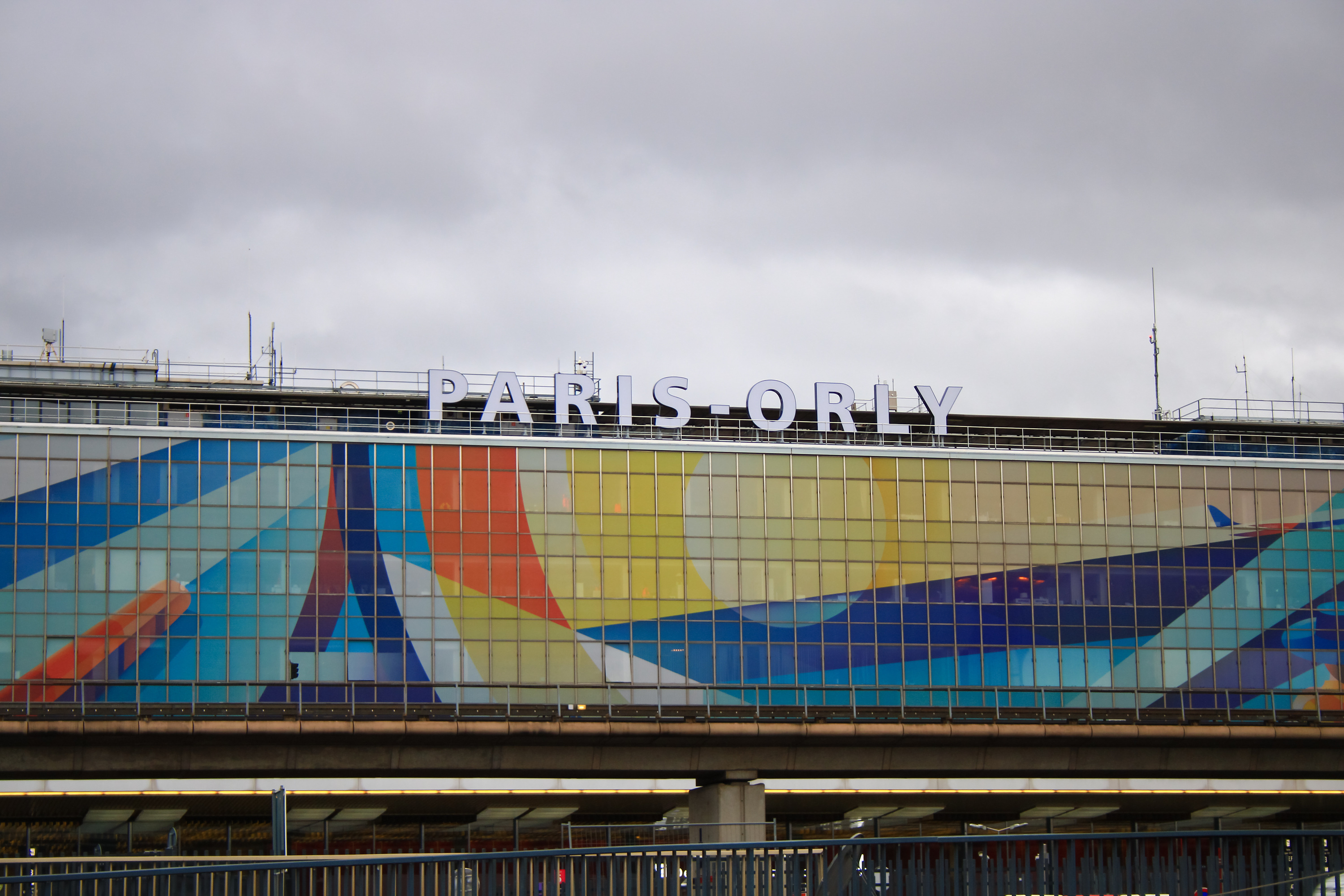After days of struggling, the traffic light and the Union have cleared the way for the planned citizens' allowance. Both sides reached compromises on the disputed issues regarding the planned social reform, confirmed Katja Mast, the first parliamentary secretary of the SPD parliamentary group in the Bundestag, in a press statement.
Citizens' income is to replace today's Hartz IV benefits on January 1, 2023. However, the law has to be renegotiated in the mediation committee of the Bundestag and Bundestag because the federal states led by the CDU/CSU had stopped the reform in the Bundesrat.
Mast confirmed that the planned six-month "grace period" would no longer apply in the compromise. That also makes it easier for the job center employees. Living conditions and assets should also be checked earlier than planned. Instead of the two years originally envisaged by the traffic light, this should now happen after 12 months.
The maximum amount of the planned protective assets will be 40,000 euros instead of 60,000 euros and 15,000 euros for each additional person in the household and should only remain untouched for one year. According to BILD, it should also be possible to sanction anyone who fails to attend an appointment at the employment office without an excuse. The Union would have prevailed on several points. The more generous additional earnings limits during the receipt of the citizen's allowance - for example for affected young people who work part-time - should remain in place. The FDP in particular had insisted on this.
"Democrats must be able to compromise," replied Mast when asked whether the Union had prevailed. However, the core of the reform remains. Johannes Vogel from the FDP emphasized that sanctions were already possible in the original draft law. That was distorted in the public debate.
CDU leader Friedrich Merz said that the traffic light was "to his surprise" very open to his party's compromise proposals. Unlike the SPD, however, he sees a fundamental change in citizen income in the “without replacement” of the grace period. "This means that the core of the citizens' income, as planned by the SPD, has been completely eliminated."
Merz also emphasized that the mediation committee would not meet until Wednesday evening. "Nothing has been decided before everything is decided," said the Union faction leader. However, one can look forward to the evening with “some confidence”.
The CDU and CSU had insisted that there should be more sanctions for recipients than originally planned. Such reductions in performance should take effect if, for example, the unemployed do not apply for a job, although this was agreed with the job center. The traffic light had provided for a “period of confidence” of six months during which these sanctions should not apply.
In addition, the CDU and CSU demanded that those affected be allowed to keep less of their own assets if they receive the state benefit. The traffic light had provided for a saving of 60,000 euros.
The mediation committee meets on Wednesday evening, only then will the compromise be finalized. By Friday, the Bundestag and Bundesrat are to adopt the Citizens' Income Act. On January 1st, the salary of single people should increase by more than 50 euros to 502 euros.

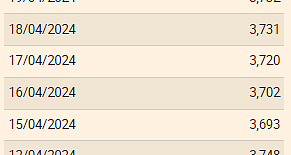 The Euribor today remains at 3.734%
The Euribor today remains at 3.734% Germany: the trial of an AfD leader, accused of chanting a Nazi slogan, resumes this Tuesday
Germany: the trial of an AfD leader, accused of chanting a Nazi slogan, resumes this Tuesday New York: at Columbia University, the anti-Semitic drift of pro-Palestinian demonstrations
New York: at Columbia University, the anti-Semitic drift of pro-Palestinian demonstrations What is Akila, the mission in which the Charles de Gaulle is participating under NATO command?
What is Akila, the mission in which the Charles de Gaulle is participating under NATO command? What High Blood Pressure Does to Your Body (And Why It Should Be Treated)
What High Blood Pressure Does to Your Body (And Why It Should Be Treated) Vaccination in France has progressed in 2023, rejoices Public Health France
Vaccination in France has progressed in 2023, rejoices Public Health France Food additives suspected of promoting cardiovascular diseases
Food additives suspected of promoting cardiovascular diseases “Even morphine doesn’t work”: Léane, 17, victim of the adverse effects of an antibiotic
“Even morphine doesn’t work”: Léane, 17, victim of the adverse effects of an antibiotic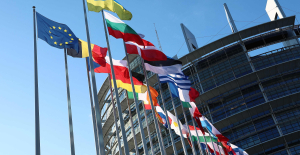 MEPs validate reform of EU budgetary rules
MEPs validate reform of EU budgetary rules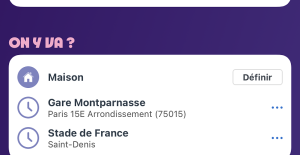 “Public Transport Paris 2024”, the application for Olympic Games spectators, is available
“Public Transport Paris 2024”, the application for Olympic Games spectators, is available Spotify goes green in the first quarter and sees its number of paying subscribers increase
Spotify goes green in the first quarter and sees its number of paying subscribers increase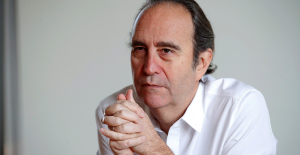 Xavier Niel finalizes the sale of his shares in the Le Monde group to an independent fund
Xavier Niel finalizes the sale of his shares in the Le Monde group to an independent fund Owner of Blondie and Shakira catalogs in favor of $1.5 billion offer
Owner of Blondie and Shakira catalogs in favor of $1.5 billion offer Cher et Ozzy Osbourne rejoignent le Rock and Roll Hall of Fame
Cher et Ozzy Osbourne rejoignent le Rock and Roll Hall of Fame Three months before the Olympic Games, festivals and concert halls fear paying the price
Three months before the Olympic Games, festivals and concert halls fear paying the price With Brigitte Macron, Aya Nakamura sows new clues about her participation in the Olympics
With Brigitte Macron, Aya Nakamura sows new clues about her participation in the Olympics Skoda Kodiaq 2024: a 'beast' plug-in hybrid SUV
Skoda Kodiaq 2024: a 'beast' plug-in hybrid SUV Tesla launches a new Model Y with 600 km of autonomy at a "more accessible price"
Tesla launches a new Model Y with 600 km of autonomy at a "more accessible price" The 10 best-selling cars in March 2024 in Spain: sales fall due to Easter
The 10 best-selling cars in March 2024 in Spain: sales fall due to Easter A private jet company buys more than 100 flying cars
A private jet company buys more than 100 flying cars This is how housing prices have changed in Spain in the last decade
This is how housing prices have changed in Spain in the last decade The home mortgage firm drops 10% in January and interest soars to 3.46%
The home mortgage firm drops 10% in January and interest soars to 3.46% The jewel of the Rocío de Nagüeles urbanization: a dream villa in Marbella
The jewel of the Rocío de Nagüeles urbanization: a dream villa in Marbella Rental prices grow by 7.3% in February: where does it go up and where does it go down?
Rental prices grow by 7.3% in February: where does it go up and where does it go down? Europeans: “All those who claim that we don’t need Europe are liars”, criticizes Bayrou
Europeans: “All those who claim that we don’t need Europe are liars”, criticizes Bayrou With the promise of a “real burst of authority”, Gabriel Attal provokes the ire of the opposition
With the promise of a “real burst of authority”, Gabriel Attal provokes the ire of the opposition Europeans: the schedule of debates to follow between now and June 9
Europeans: the schedule of debates to follow between now and June 9 Europeans: “In France, there is a left and there is a right,” assures Bellamy
Europeans: “In France, there is a left and there is a right,” assures Bellamy These French cities that will boycott the World Cup in Qatar
These French cities that will boycott the World Cup in Qatar Serie A: Bologna surprises AS Rome in the race for the C1
Serie A: Bologna surprises AS Rome in the race for the C1 Serie A: Marcus Thuram king of Italy, end of the debate for the position of number 9 with the Blues?
Serie A: Marcus Thuram king of Italy, end of the debate for the position of number 9 with the Blues? Milan AC-Inter Milan: Thuram and Pavard impeccable, Hernandez helpless… The tops and flops of the derby
Milan AC-Inter Milan: Thuram and Pavard impeccable, Hernandez helpless… The tops and flops of the derby Ligue 2: Auxerre leader, Bordeaux in crisis, play-offs... 5 questions about an exciting end of the season
Ligue 2: Auxerre leader, Bordeaux in crisis, play-offs... 5 questions about an exciting end of the season






